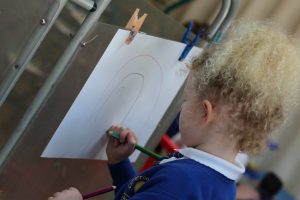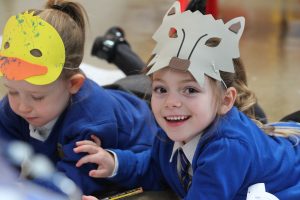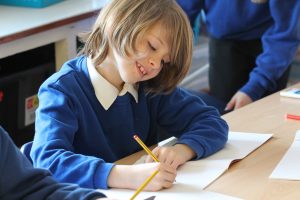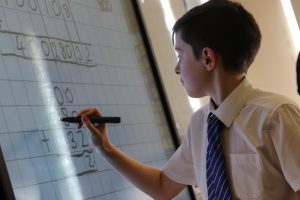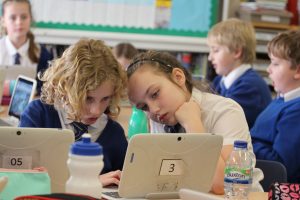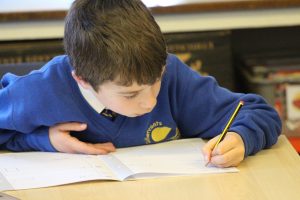English
We believe that literacy and communication are key life skills. Through the English curriculum, we will help children to develop the skills and knowledge that will enable them to communicate effectively and creatively through spoken and written language and equip them with the skills to become lifelong learners. We want children to enjoy and appreciate literature and its rich variety.
The English curriculum is delivered using the National Curriculum English Document (2014). The Early Learning Goals are followed to ensure continuity and progression from the Early Years Foundation stage through to the National Curriculum. Teachers group children according to their abilities and work should be differentiated accordingly using effective methods such as support, outcome and task. Where appropriate, literacy units will link to creative curriculum themes to promote cross curricular learning.
Reading is an important part of the English curriculum in our School. Reading books are organised on a book banding system ensuring the children read books appropriate to their level (the children’s reading should be 99% accurate in these books). These books are provided and sent home regularly for parents to read with their children.
Our Reading Scheme consists of The Oxford Reading Tree, Floppy's Phonics, Tree Tops and is complimented by Project X Books and Real Readers.
Shared and guided reading takes place within English lessons to provide enriching experiences through more challenging texts. Teachers also share stories with the class displaying an enthusiasm for reading and setting a positive example as a reader.
Phonics is delivered daily in Early Years Foundation Stage and taught in Year One following the Floppy's Phonics Scheme. In Year Two our children further develop their reading and grammar skills.
Shared and modelled writing, takes place within English lessons. This allows the teacher to demonstrate good writing practice to the children while using their ideas. Teachers ensure that the writing demonstrated shows high expectations and covers the success criteria they would expect to see in the children’s writing.
Talk for writing is used successfully across the school to help children to gather ideas and structure their writing.
Children are expected to write frequently in a range of forms. This may be responses to a text, filling in text feature grids, short writing tasks such as writing as a character or writing a whole story or report as an extended piece of writing.
In the new English curriculum, grammar, punctuation and spelling now play a key role in the children’s writing. These skills are referred to during English lessons and children are encouraged to integrate their grammar and spelling learning within their writing.
The national curriculum for English reflects the importance of spoken language, cognitively, socially and linguistically. Spoken language underpins the development of reading and writing. Throughout the school from Nursery upwards ensure the continual development of pupils’ confidence and competence in spoken language and listening skills. Children will be taught to understand and use the conventions for discussion and debate.
All children are given the opportunity to engage in a range of dramatic conventions including improvisation, role-play and hot seating and school productions as well as respond thoughtfully to drama and theatre performances.
Our English curriculum is enhanced throughout the curriculum with a range of events and opportunities to promote literacy in all its forms including World Book Day, Film Week and a number of performance opportunities.


